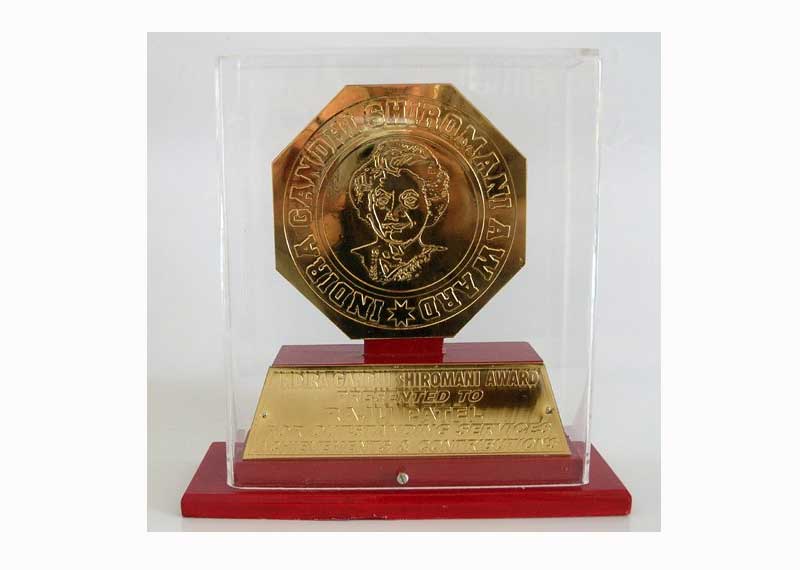The Indira Gandhi Prize or the Indira Gandhi Peace Prize or the Indira Gandhi Prize for Peace, Disarmament and Development is the prestigious award accorded annually by Indira Gandhi Memorial Trust to individuals or organisations in recognition of creative efforts toward promoting international peace, development and a new international economic order; ensuring that scientific discoveries are used for the larger good of humanity, and enlarging the scope of freedom.
The prize carries a cash award of 2.5 million Indian rupees and a citation. A written work, in order to be eligible for consideration, should have been published.
The panel constituted by the Indira Gandhi Memorial Trust consists of prominent national and international personalities including previous recipients. The recipients are chosen from a pool of national and international nominees.
The Indira Gandhi Prize First awarded in 1986.
| Year | Recipient | State/Organization | Description |
|---|---|---|---|
| 1986 | Parliamentarians for Global Action | – | International Organisation of Parliamentarians |
| 1987 | Mikhail Gorbachev | Former Soviet Union Leader | |
| 1988 | Gro Harlem Brundtland | Former Prime Minister of Norway | |
| 1989 | UNICEF | United Nations Children’s Emergency Fund | |
| 1990 | Sam Nujoma | First President of Namibia | |
| 1991 | Rajiv Gandhi | Former Prime Minister of India (posthumous) | |
| 1992 | Saburo Okita | Japanese Economist | |
| 1993 | Václav Havel | 1st President of the Czech Republic | |
| 1994 | Trevor Huddleston | Anti-Apartheid Activist | |
| 1995 | Olusegun Obasanjo | 12th President of Nigeria | |
| 1996 | Médecins Sans Frontières | Voluntary Organisation | |
| 1997 | Jimmy Carter | 39th President of the United States | |
| 1998 | Muhammad Yunus | Founder of Grameen Bank | |
| 1999 | M S Swaminathan | Indian Agricultural Scientist | |
| 2000 | Mary Robinson | 7th President of Ireland | |
| 2001 | Sadako Ogata | Former United Nations High Commissioner for Refugees | |
| 2002 | Shridath Ramphal | 2nd Commonwealth Secretary-General | |
| 2003 | Kofi Annan | 7th United Nations Secretary General | |
| 2004 | Maha Chakri Sirindhorn | Princess of Thailand | |
| 2005 | Hamid Karzai | 12th President of Afghanistan | |
| 2006 | Wangari Maathai | Environmental and Political activist | |
| 2007 | Bill and Melinda Gates Foundation | Charitable Foundation | |
| 2008 | Mohamed ElBaradei | 4th Director General of the IAEA | |
| 2009 | Sheikh Hasina | Prime Minister of Bangladesh | |
| 2010 | Luiz Inacio Lula da Silva | Ex-President of Brazil | |
| 2011 | Ela Bhatt | Founder of SEWA | |
| 2012 | Ellen Johnson Sirleaf | President of Liberia | |
| 2013 | Angela Merkel | Chancellor of Germany | |
| 2014 | Indian Space Research Organisation | Indian Space Agency | |
| 2015 | UNHCR | United Nations High Commissioner for Refugees | |
| 2017 | Manmohan Singh | Former Prime Minister, Finance Minister, and Governor of the Reserve Bank of India | |
| 2018 | Centre for Science and Environment | Not-for-profit public interest research and advocacy organisation based in New Delhi, India. | |
| 2019 | Sir David Attenborough | World renowned English broadcaster and natural historian |

